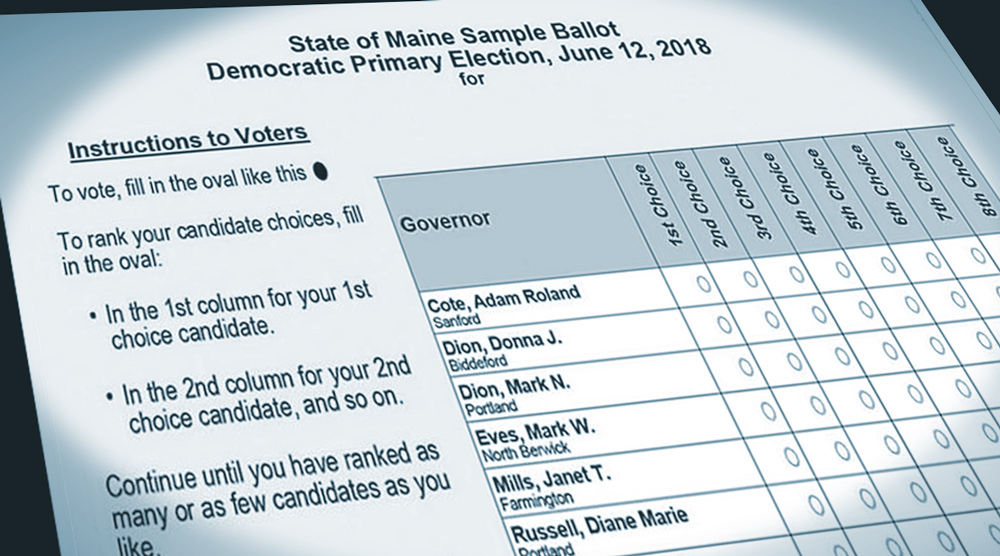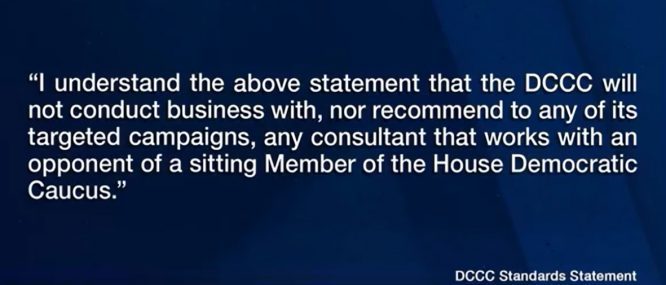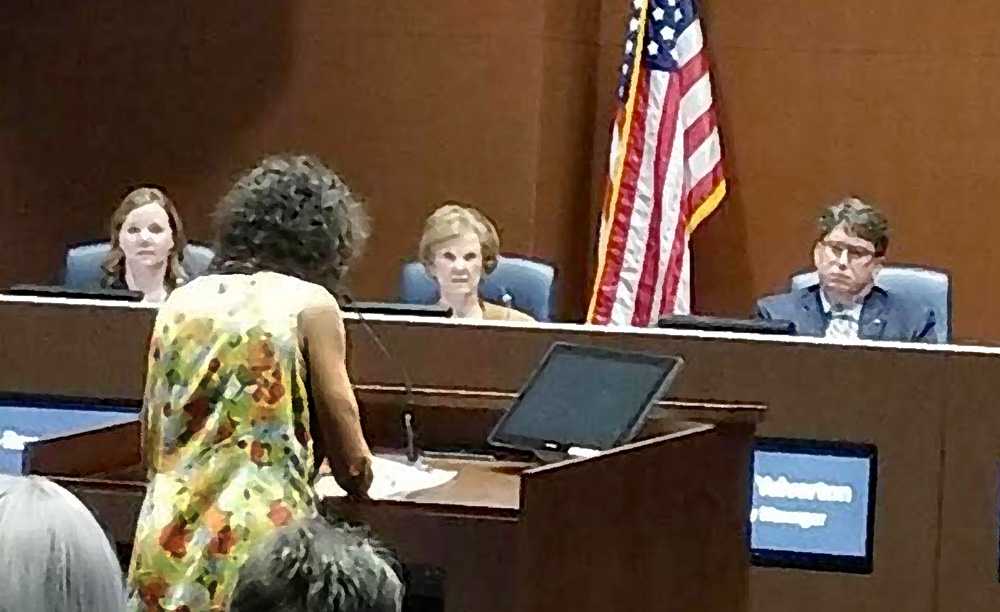Bruce Poliquin, Maine’s incumbent second-district U.S. Representative, knows what to blame for his loss this last election: the preferences of Maine voters.
Well, he blames Ranked Choice Voting (RCV) … in which voters rank the candidates by preference, and whose votes are counted so to better tally second- and even third-favored options.*
The Republican Representative enjoyed a slight lead on election night, but fell short of a majority. When two independent candidates were eliminated, their second-choice votes put Democrat challenger Jared Golden over the 50-percent mark.
Maine Republicans are upset. It turns out that losing isn’t as much fun as winning.
Shocking, I know.
So Poliquin sued, arguing that RCV is unconstitutional. He asked a federal judge to stop the ballot tabulation.
Judge Lance Walker, a Trump appointee, was “not persuaded.” He additionally noted that “the citizens of Maine have rejected the policy arguments plaintiffs advance against RCV.”
Twice.
In 2016, Mainers passed RCV by ballot initiative and then, in a 2017 referendum, vetoed the legislature’s arrogant repeal of the voter-enacted reform.
“While Mr. Poliquin publicly works through the five stages of grief over his election loss,” remarked RCV advocate Kyle Bailey, “the real story is that the implementation of Maine’s Ranked Choice Voting law was smooth, transparent, and in accordance with the will of the Maine voters,”
Meanwhile, Chuck Slocum, past chair of the Republican Party of Minnesota, urges fellow Republicans to “consider” this non-partisan reform.
Yes, a process that better counts voter preferences ought to help your political party.
This is Common Sense. I’m Paul Jacob.
* In cases where no candidate gains a majority of first-choice votes, the last place candidate is eliminated and his or her votes re-allocated to those voters’ second choice, and this process continues until a candidate reaches a majority.
PDF for printing

» See popular posts from Common Sense with Paul Jacob HERE.










